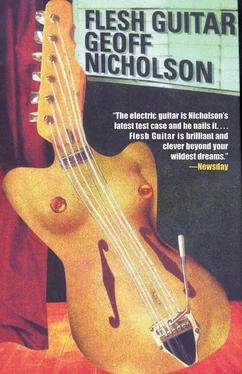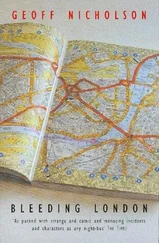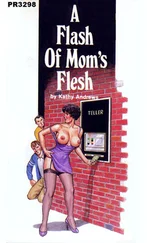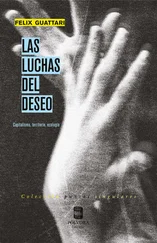Then, in the early seventies, he joined a power trio called Dreadnought, who played distinctly ponderous heavy rock, gathered terrible reviews, but nevertheless made a terrific pile of money touring the States and the Far East. The band was so successful that Churchill was able to indulge a taste for more esoteric playing, and he and Jenny Slade performed and recorded some truly off-the-wall duets.
Twenty years on, Dreadnought records were still selling massively and the band were still having occasional and highly profitable reunion tours, and it was on one of these that the Alzheimer’s first got to Jon.
It was during a second encore at the Dallas Civic Arena, playing a famous Dreadnought number called ‘The Journey’, a complex, twenty-minute multi-sectioned workout that he knew like the back of his hand, when he suddenly forgot what song he was playing. He also forgot what city he was in, who the two guys on stage with him were, and if anybody had asked he’d have been hard pressed to come up with his own name or even what planet he was on.
Afterwards, when he was back to normal, he wanted to put it down to road fever, to too many late nights, to too many drugs taken many years ago, but he got himself to a doctor who told him it was Alzheimer’s, and also assured him there was no coming back, no way out of the tunnel.
Jon Churchill went into distinguished semi-retirement, stopped playing in public, but fortunately was still in demand for session work. He played on a Pete Townshend solo project, was the house drummer for a session at a guitar festival in Seville. He played free jazz with Derek Bailey and Evan Parker, worked with Ryan Beano, Steve Albini, Laurie Anderson and, of course, Jenny Slade. He was still highly respected, and he was lucky. For a long time the bad, blank phases never coincided with important studio dates. But when a furious Daniel Lanois rang up demanding to know why Churchill wasn’t at a session in New Orleans, Jon denied all knowledge of the booking, of the music he was supposed to have learned, and before the end of the phone call he’d also forgotten who he was talking to.
A part of him was still intelligent and thoughtful and so he decided to stop right there, to slip away gracefully. There was a small farewell charity gig, in front of an invited audience, at which he played faultlessly along with a lot of the usual suspects. Sting sent his apologies, but Kim Gordon and Ray Cooper made it. It was a good gig and there was a live CD, although the sales were admittedly disappointing.
After that he gave up drumming completely and retired to a converted lifeboat station on the Suffolk coast. He said he would never bother or embarrass anybody with his condition. He would not ask for sympathy nor rub his illness in anyone’s face, and he was as good as his word.
It was a big change for his wife Beth. She was a session singer in her own right and had recently started to perform with a jazz a cappella group, but she had no hesitation in giving that up and agreeing to this strange new life. She would be there to protect him from the world. There would be no visitors, no journalists. He would be allowed to slip slowly and permanently from the public imagination.
It was a quiet life. Jon Churchill would spend most of his days sitting on the porch of the house, watching the sea. Often he felt adrift as the tides of dementia swept in and made his mind as smooth and clear as sand, then later, more terrifyingly, he would have moments of clarity and realize how much he’d lost, how much he still had to lose. He sometimes glanced at the newspapers, though the affairs of the world meant nothing to him, and sometimes he would listen to music, even on occasions his own music, but that too made little impression.
His old drum kit was kept in the basement of the house. Since the charity gig Jon had not shown the slightest inclination to play the drums, had even suggested to Beth that they sell them. But Beth hadn’t allowed that and so the drums remained in the cellar, still and silent, along with his collection of percussion instruments from around the world. There was plenty of the more orthodox stuff, the tambourines and maracas, congas, bongos and tom toms, marimbas and castanets. But then there were more ethnic instruments; thumb pianos, talking drums, log drums, tablas, a derbuka. There was electronic gadgetry: pads, kick controllers, acoustic triggers. And then there were lots of items he’d built himself: weird percussive devices made from springs, car parts, beer cans, the insides of typewriters and old computers. Sometimes Beth would go down and look at it all and she couldn’t help weeping, but for Jon none of it had any more emotional significance than a new drumskin.
Beth was determined not to treat her husband like an invalid, and not to turn herself into a nursemaid. There was no need. His body remained fit and strong and he was in no danger of injuring himself. He could certainly be left on his own without her needing to worry. So she often drove into town for the day and did some shopping, bought food for the house and one or two things for herself. She might buy some expensive and impractical article of clothing that she would never have any occasion to wear, and perhaps half a dozen new paperbacks that she would read in the long quiet evenings.
It was on just such a day, an overcast, blustery day in early summer, after she’d been gone for four hours or so, that she returned to find that something quite extraordinary had happened in her absence. A profound change had overcome her husband.
At first, as she pulled into the drive of the house, she could see and hear nothing different, but then she turned off the car engine and she heard drumming. There was no mistaking Jon’s style, and the quality of the sound told her it was live, not recorded. She ran round the side of the house and peered in through the french doors. Jon Churchill was indeed playing the drums. He’d moved his kit and all his percussion instruments up from the basement to the living room, and as he played his face looked utterly vacant and his eyes stared out at the sea and sky. His playing was rhythmic but slow, determined yet not thunderous. Beth didn’t know whether to weep or to cheer, and in the event she did a little of both.
Jon saw her standing on the other side of the glass and, without missing a beat, motioned for her to come inside. The day was chilly and the sea was loud and as Beth opened the french doors cold air and the steady, shuffling sound of the sea rolled into the room. A look of wonder came into Jon’s eyes and he began to play in time with the noise of the sea. Six hours later he was still playing, and he didn’t stop until eventually he fell asleep sitting up on his drum stool.
Thus began the worst month of Beth’s life. Night and day, all day, every day, every minute except when he was eating or sleeping (and he did little of either) Jon Churchill continued to play the drums. A part of Beth was pleased, or at least felt she ought to be pleased, for when Jon played it was as though he was his old self again. He had lost none of his touch or dexterity. On one level she could even appreciate his performance, for this wasn’t just doodling or practising, he was performing as though for an audience, and although he seemed to be playing a drum solo of indefinite, possibly infinite, length there was a recognizable shape and structure to what he was doing. He was improvising and yet his playing seemed thought out, fully conceived, composed even. He never paused to consider what to do next.
Beth had always loved his drumming, the way his body moved when he played, the supple articulation of his sound. And yet who could possibly live in the same house as a man who played the drums relentlessly for eighteen or twenty hours a day?
Читать дальше












